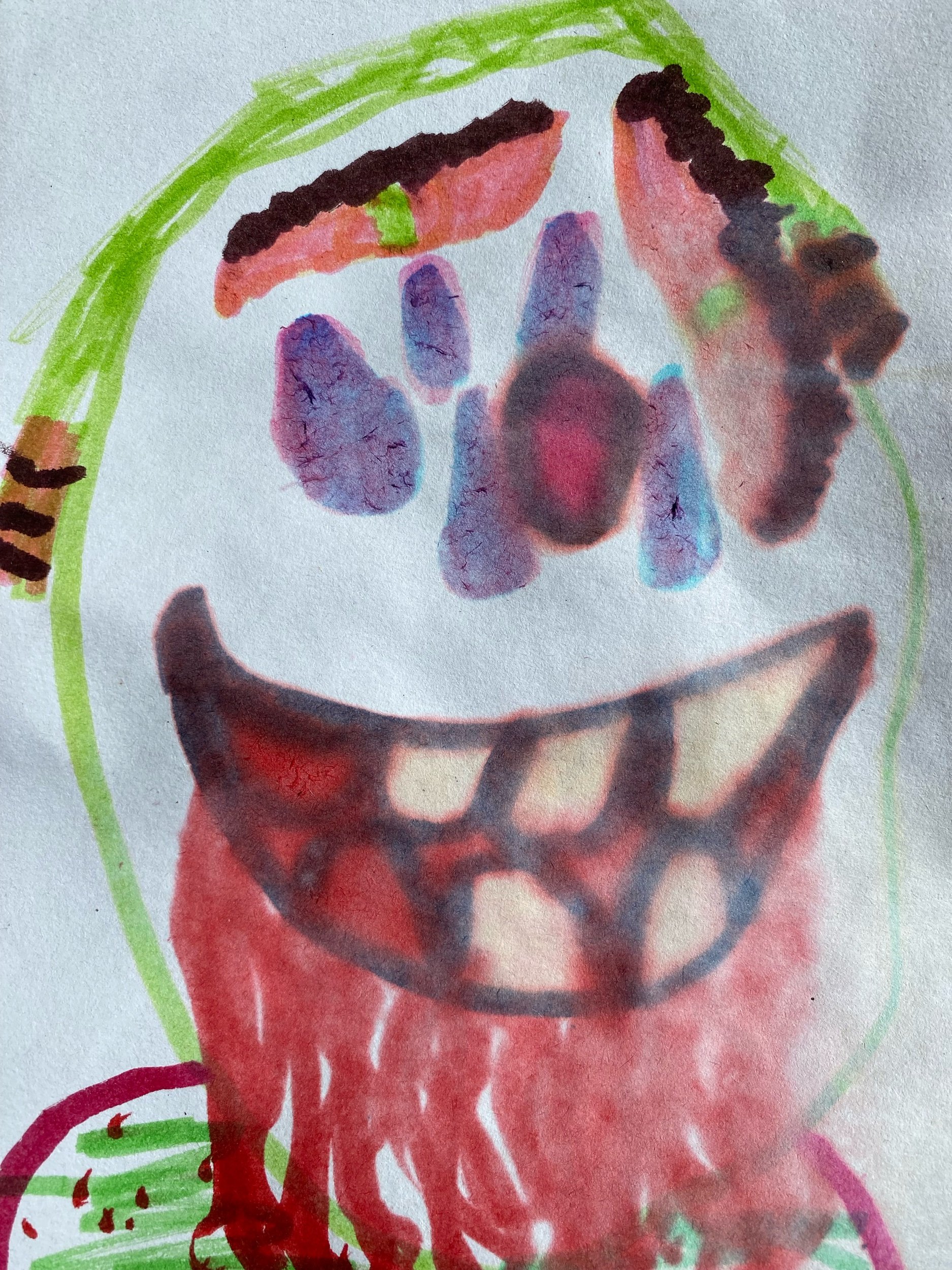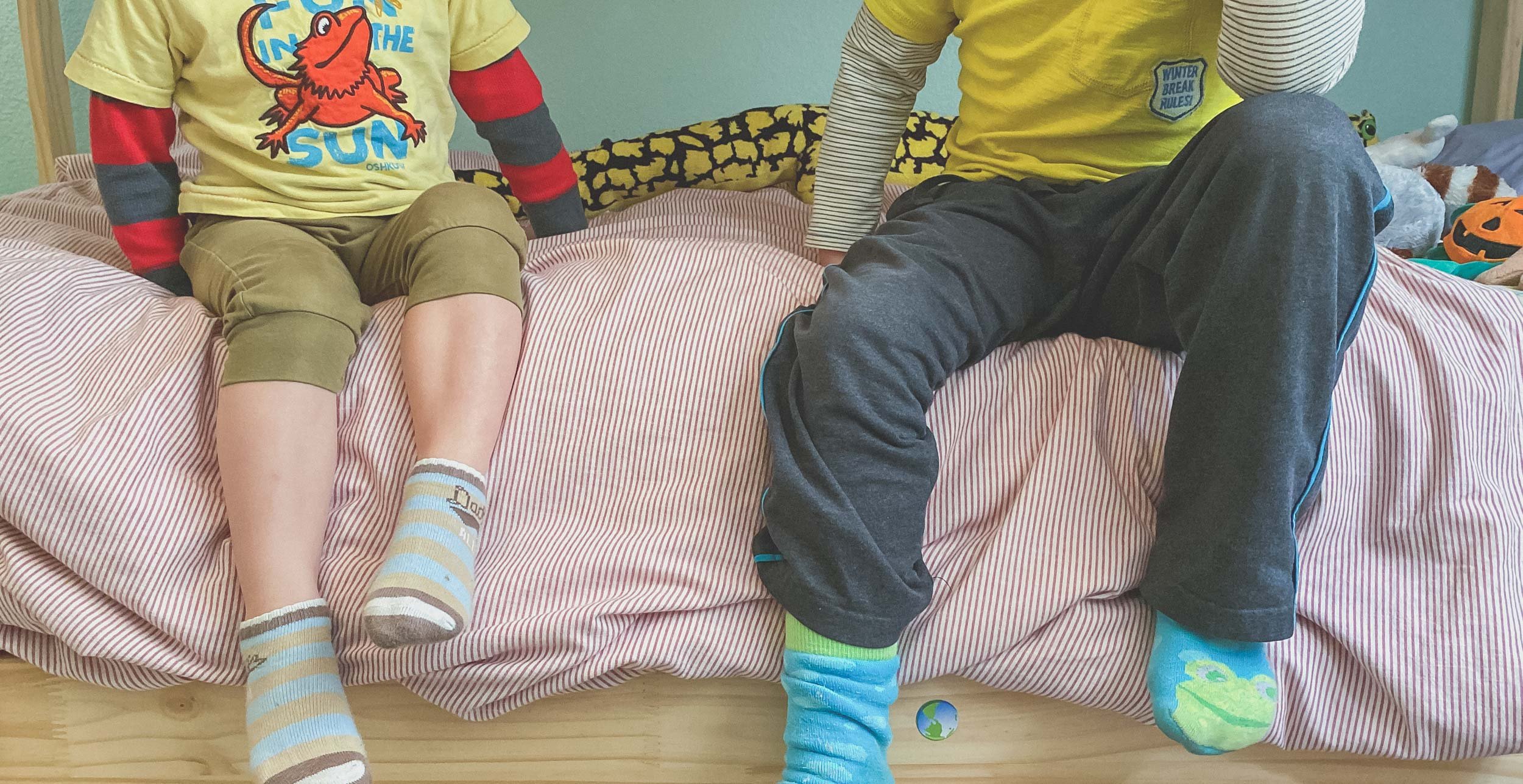Another talk with dad.
Another talk with Dad : dialogs between 3 and 46 and various others.
We had a talk. Another talk. Me and one of our sons. I don’t remember precisely what the catalyst for the talk was. But it was a necessary talk. He was not extraordinarily excited about this talk; this feeling falls in line with his three older siblings’ feelings on this sort of talk.
We have these talks on a regular basis.
Before our first child was ever born, we knew there were things we would do and things we would not do, and in between those hard lines would be a lot of gray area as a laboratory for us to learn.
Some of the lines we decided emphatically on involved choosing to never, ever, utilize physical punishment as a child raising strategy - or as any kind of strategy. I am very grateful for making this decision beforehand, because if it was left to the heat of the moment, then there are plenty of occasions where we may have rationalized it. There are likely plenty of people out there smirking and referencing their own childhoods and congratulating themselves on how effective corporal punishment was, et cetera.
I have a big blast of standing my ground to deliver:
because something feels mildly effective in the present, in the moment, in the short-term, does not mean it was effective. And it does not mean it was the best course of action. Most likely - I say this defiantly - it was most likely the easiest course of action. And importantly, it was an action that felt like you were doing something, something, and - this is very important - most likely, someone lost their patience. Probably the person in power. In authority. That happens.
Losing your patience is understandable. Our kids will vouch for my ability to do so. But that makes it more important than ever to decide ahead of time how you’re going to handle certain situations when they come along. Otherwise, you’ll go with your emotions, and most likely will not handle a challenging situation in an effective way that will do anyone any good. It may feel like it in the short term if you bring the Old Testament wrath of authority down with a heavy hand and big stick, so to speak - or sadly in some cases, not just so to speak.
You might even be someone who’s grown up and expressed gratefulness for the authoritarian manner in which your parents brought the boom down. Fine. But I still stand my ground - and this is standing it after years of concentrated thought, reflection, introspection, study, dialog, and listening to people who study the long-term consequences of these things - I stand my ground that just because a person turns out fine does not mean that the behavior that got them to that point was justified, was helpful, or was better than other options in helping to raise a thinking, caring, productive, independent human over the long run.
Perhaps my naïveté shows here, and perhaps there are parents who do not desire this sort of outcome for their offspring. To crush spirits, to hit bodies, to bury personalities under the mandate of authority…what does this teach, what does it model, where does it get us?
It is not an abdication of responsibility or authority to commit to finding better solutions to challenging situations. I am fully in favor of parents guiding, shepherding, modeling in a firm and confident manner - but one that leaves the arrogance behind.
To hit a person, intentionally, with the motive being to inflict a punitive action; to punish; is an act of aggression, of arrogance, of frustration and violence. It may be considered by some to be acceptable, but make no mistake, it is an act of violence that requires a big asterisk. It’s an act that sets the stage for their future and how they choose to handle conflict, disagreement, and authority in their lives.
Make no mistake, I’m a hypocrite and I’m not a pacifist. If I ever saw someone hitting my child, hitting a child, a peaceful resolution would be furthest from my mind. I recognize my own full-on Old Testament rising up: you do this to my child, I do this to you, times two. Hypocrisy. It’s a battle.
Let’s not pretend that hitting a child because your authority has been messed with is actually a good thing though.
So what other options? It is by no means certain that we have it all figured out. But this is how we have chosen to handle these situations:
Talk.
Talk.
Talking - and I embed listening within this - requires attention. I am willing to take their time away from them, and importantly, away from myself. I am investing in them. I will talk, and I will ask questions, and they will talk, and we will go back and forth, and it may be a while. It takes time. But I am determined to get through, to battle, to fight for them even when it means battling with them in the moment. We will talk. That is something they sometimes dread with me; to have to go through the process again of another talk. Another talk. Another.
Sometimes there is more resolution than other times. It’s a process. But if we really, really, really care about learning and improving and becoming better parents, then there has to be dialog. There has to be talking. There has to be an understanding that something happened that needs to be addressed. Choosing to talk is not capitulation. It is the hard road, the road that winds and curves and doubles back - oh, does it double back - and it sometimes feels like there’s no end.
And yet I am an advocate, unequivocally, for it being the best way I have found. It is is not capitulation. It is not giving up. It is dealing with conflict, dealing with a challenge, and finding a way forward together.
Together.
Together. My kids may reject, right now, my characterization of ‘our talks’ as being a communal voluntary experience. It’s not. It is me - us - exercising our authority, our mandate, to take their time; to take our time and invest in exploring together a way to move forward without repeating the same cycles of mistakes ad infinitum. It is sometimes slow and sometimes tortuous and often hard and frequently long. But it is worth it. It. Is. Worth. It. Establishing a way to address the important things that is two-way, that is engaged, and that offers hope…that is the hope.
Hope is the thing.
Aaaah! That is the horrific nature of their childhood: another talk with Dad.
This is the existence forced upon them. We must bumble forward into the unknown.*
——
*thank you, Frank Gehry























